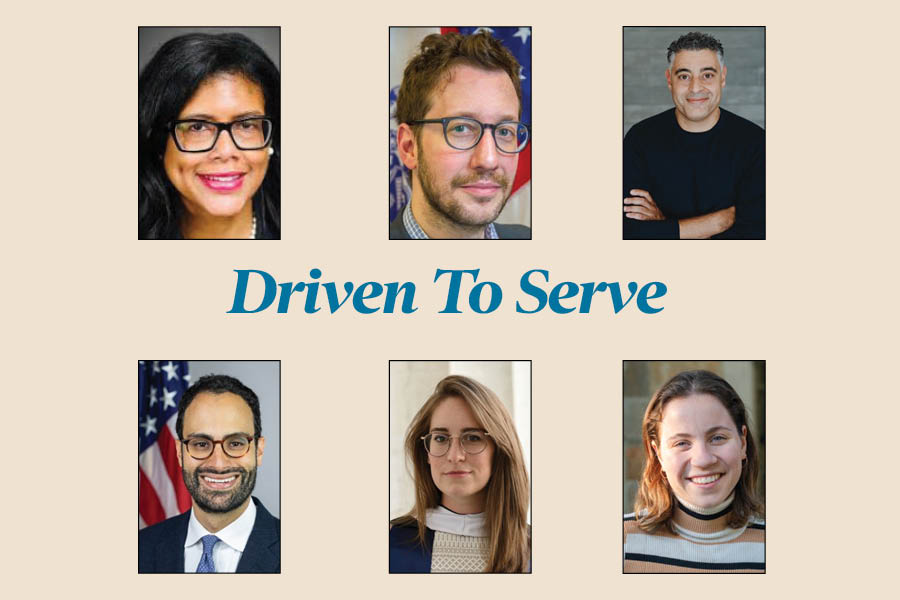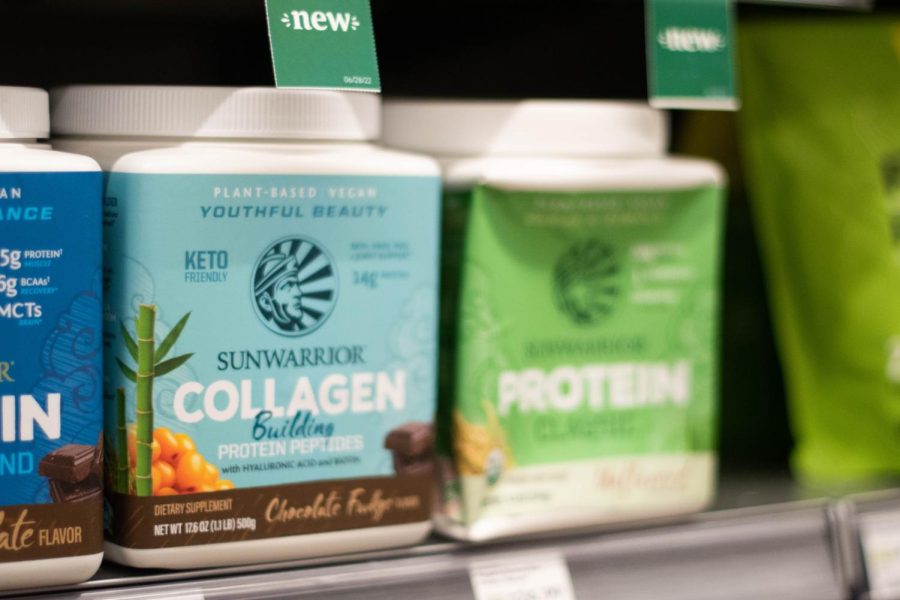Smoothie superfoods: Really beneficial or exaggeration?
SUPER SMOOTHIES. Advertising certain additives as “superfoods” represents a marketing strategy exaggerating their benefit.
April 5, 2022
On the menu of the acai restaurant are varieties of proteins and antioxidants labeled as “superfoods.” Matcha. Collagen powder. Whey powder. These are just some of the many superfoods thought to be nutritionally dense that some people view to be life-changing. The number of options seen in the media or overheard from friends can be overwhelming. But, exactly how beneficial are these seemingly magical ingredients?
Kristen Straughan, director of the nutrition science program at the University of Illinois at Chicago, is one of many dietitians who continue to question the health benefits of superfoods. Below are five highly regarded superfoods, which Ms. Straughan evaluates as significantly beneficial, exaggerated or simply unknown due to minimal research.
Chia seeds:
Chia seeds come from a plant called Salvia hispanica L. They are the richest source of omega-3 fatty acids, essential to receive in one’s diet.
Ms. Straughen said chia seeds serve as a great way of receiving omega-3 fatty acids. However, foods such as fatty fish should be the primary source.
“Chia seeds are a plant-based version of the omega-3 fatty acids, and because they are plant-based, they are actually not absorbed as well as fatty fish would be,” she said.
Ms. Straughen said that although most nutritionists would recommend straying away from relying solely on chia seeds for omega-3 fatty acids, they are a great additive to something like a smoothie bowl.
Collagen:
Collagen is an animal protein everyone has in their body. The idea is that taking collagen in oral form can replace the collagen that the body is losing. Some of the proposed benefits of consuming collagen include anti-aging and the improvement of skin elasticity.
Ms. Straughen said there is not enough evidence to support such claims, and as a result, it is misrepresented in the media.
“Because we do not have a lot of research on collagen powder, it is romanticized as having more benefits than it actually will induce,” she said. “We will just have to keep watching the literature on that.”
Matcha:
Matcha is an antioxidant usually consumed to combat free radicals. Exposure to free radicals can be heightened due to increased time in the sun, but they are produced every time the body consumes food, regardless of diet.
Ms. Straughen emphasized antioxidants are important in a diet.
“Antioxidants are very important because they help prevent the damage that free radicals cause. Some of that damage can show up as heart disease, cancer and aging,” she said.
She said that antioxidants could be consumed by eating whole grains, fruits and vegetables, but sources like matcha and other teas are great additions.
Wheatgrass:
Wheatgrass is the young grass of the plant Triticum aestivum. It is advertised to reduce oxidative stress and boost metabolism.
Ms. Straughen said the benefits of wheatgrass are exaggerated and untrue a lot of times, although there is no harm in consuming it.
“The media advertises wheatgrass as life-changing, but in reality, it is not any better than fruits and vegetables,” she said.
Whey powder:
Whey protein or powder is found in many dairy products such as milk and yogurt. The liquid that gathers at the top of yogurt is one of the more visible ways of seeing the protein.
Ms. Straughen said that whey powder is unnecessary if the body is receiving enough protein.
“There is not anything substantial about whey powder where you would see or feel a noticeable difference,” she said. “I want to emphasize that it is not bad or harmful, just very needless.”
Overall, Ms. Straughen said that the term “superfood” is misrepresented in the media.
“It is a marketing strategy used to portray these additives as something greater than some of them are,” she said. “You cannot eat Flamin’ Hot Cheetos all day, eat a superfood and expect to suddenly be healthy. It is about the choices you make in the long run.”
She said the value of science and social media’s power on society greatly influences the choices people make.
“Our meal and nutritional patterns matter, but not one superfood additive or food is not going to make a difference in our health,” she said. “We really have to think more generally about what foods we are eating in our diet instead of relying on one gimmicky tip we saw on social media.”
Ms. Straughen said a misconception about coconut oil flooded social media platforms a couple of years ago.
“Coconut oil used to be popular and trendy because people and the media said that there were immense health benefits. There was no research to back this up,” she said. “Coconut oil brands just had great public marketing strategies.”
Sophomore Mary Bridget Maloney eats acai bowls quite often and said that she is aware of the exaggerated advertisement of certain additives and toppings.
Mary Bridget said, “I don’t think they hurt anything, but they tend to be pretty expensive, and I think there are easier and cheaper ways to eat healthily.”
Similarly, senior Amanda O’Donnell prioritizes having a balanced diet overconsuming certain superfoods.
“I know that chia seeds and other superfoods are seen to be ‘healthier’ than other foods, but when I look for foods, I mainly look for a balanced diet with various nutrients,” Amanda said.
So, while the names of certain superfoods and additives may look and sound intriguing, ultimately, prioritizing a balanced diet and only supplementing it with such additives is critical to see notable changes.
“No one food is going to change our life. We have to think more generally — what foods we are eating,” Ms. Straughen said. “As opposed to saying one additive or food is good for us, think in the long run.”
































































J. Alvarez • Apr 6, 2022 at 11:41 pm
The article emphasizes the importance of consuming Omega-3 fatty acids. It is important to note that those following a mostly vegetarian diet must ensure to eat seeds, nuts and grains to receive this essential nutrient. Flax seeds, Chia seed, Walnuts, Eggs are excellent sources of omega-3 fatty acids.